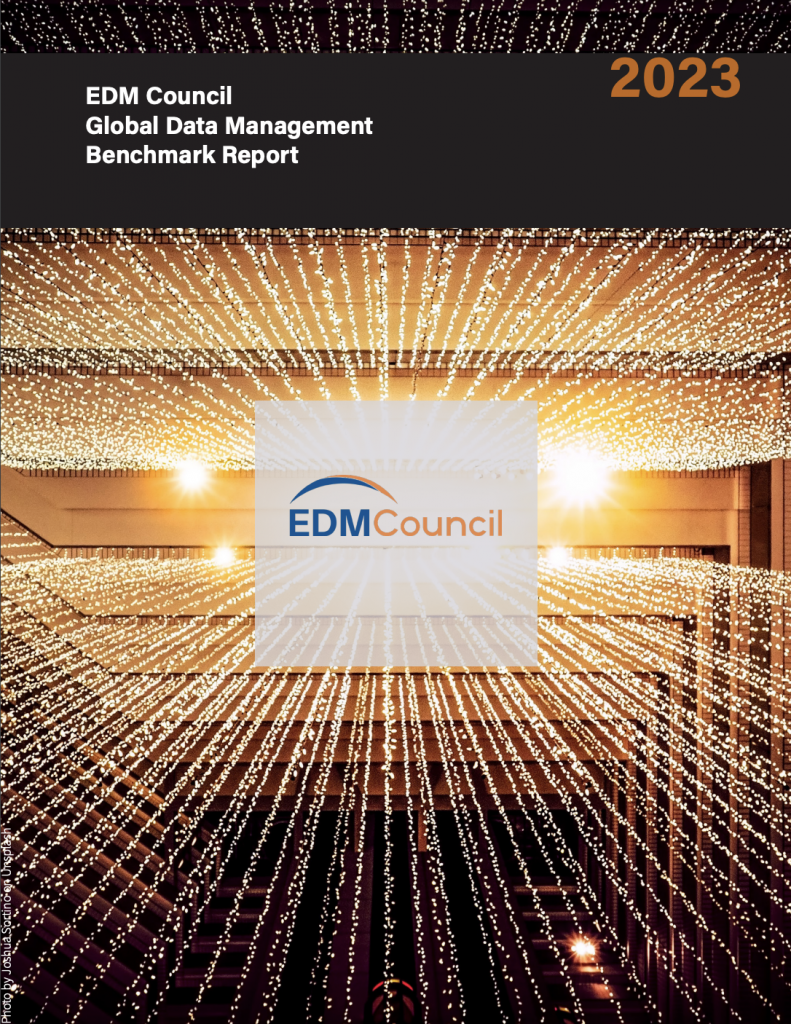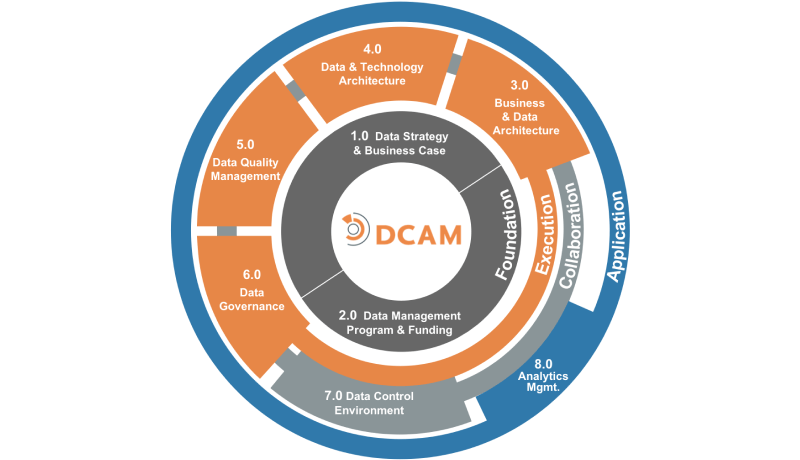
As autumn settles here in the northern hemisphere, with October baseball underway, the first frost arriving, and the holiday season on the horizon, it’s a time I look forward to. The exhilarating rivalries of college football remind me of my days as a student where nothing quite compared to being among 100,000+ fans cheering passionately for our team.
Earlier this year, I met Tony Mazzarella, a fellow data enthusiast (we’re all data geeks!), data professional, and PhD candidate at the University of Arkansas Little Rock (UALR). Tony presented a research proposal to the EDM Council aimed at merging academic theories with real-world industry practices to enhance our understanding of best practices in the dynamic field of data management. His proposal resonated with my own experiences as an MBA student when I applied academic theories to my real-world corporate experiences for a final project.
Over the past few months, the EDM Council’s Product Management Team has collaborated with Tony on a joint research project that unites academia and industry. This initiative will utilize the EDM Council’s 2023 Global Data Management Benchmark Report, alongside a specially crafted survey titled “Towards Resilient Data Management: Practitioner Perspectives on the Current State of Data Governance.” We invite the data management and business community from all industries to participate in this first-of-its-kind study that will benefit all. Take the survey before Sunday, December 1, 2024.

Together, these research studies aim to uncover new insights into data management and governance practices. Such research supports the mission of the EDM Council: to elevate data management and analytics as a strategic business priority.
The EDM Council will leverage the survey results to enhance our research on data management best practices, supporting the continued development of DCAM – the Data Management Capability Assessment Model. This framework is instrumental in evaluating the progress of the data management profession. The focus of Tony’s research at UALR and the insights gathered from the survey will be pivotal in shaping his dissertation for his doctoral program.
This research represents a pioneering effort to connect academia and industry to deepen our understanding of data governance by actively engaging its diverse workforce. By examining professionals across various industries, roles, and functions, the study explores their backgrounds, experiences, knowledge, skills, perspectives, and the motivations of their organizations regarding data governance. This anthropological approach aims to shed light on how human and organizational factors influence differing viewpoints, knowledge, and practical applications of data governance through quantitative analysis.
Moreover, the study investigates practitioners’ familiarity with emerging trends in data governance solutions and how these individuals’ insights are influenced by human factors, which in turn affect the adoption of new technologies and methods. By assessing whether industry solutions are viewed as relevant or irrelevant by practitioners across different segments, we can determine if the $100B Enterprise Data Management industry’s products and services effectively address the challenges faced by specific populations or the broader practitioner community. This will help identify discrepancies between industry offerings and the real needs of practitioners.
Research Background & Motivation
The researcher, Tony Mazzarella, is a seasoned data management professional and has extensive experience in data governance within large organizations. His professional and research observations have identified key motivations for this work:
- Data Governance has a knowledge problem. Existing literature and publications are overly theoretical and lack empirical guidance on practical implementation. The conceptual and practical entanglement of governance and management concepts and activities exacerbates this issue, leading to divergent definitions and perceptions that data governance is overly theoretical.
- The “people” challenges in data management are often overlooked. Culture is core to data governance, but its institutionalization as a business function coincided first in the financial services industry with a shift towards regulatory compliance in response to the 2008 financial crisis. “Data culture” has re-emerged in all industries, but it implies the governance function is tasked with fostering culture change rather than emphasizing that data governance requires a culture change, which is a management challenge.
- Data Management’s industry-driven nature and reactive ethos result in unnecessary change as the macroenvironment changes, undermining process resilience and sustainability. The industry’s reactive approach to data governance, coupled with knowledge challenges, leads to the perception that data governance is overly susceptible to macroenvironmental changes. The researcher argues that while external factors impact data management, they do not alter the fundamental concepts or principles of governing an organization’s data management function.
- Accelerated innovation in the information age has brought the data management profession to a critical inflection point, with growing evidence that it has failed to meet expectations in improving data quality. The researcher stresses the urgent need for a more introspective approach within the profession, emphasizing the importance of resilient data governance practices for organizations aiming to become data-driven and for safeguarding individual privacy and well-being.
The problem of practice is a lack of cross-domain understanding about data governance realities in contemporary organizations. No study has yet examined the many factors that shape data governance design, implementation, and outcomes from the perspective of those doing the work.
- We don’t fully understand the impact of data governance’s evolution — from concept to institutionalization, through rapid technological change, and other significant shifts in the macro-environment — on the people, processes, and technology involved.
- We also lack a clear understanding of the contingency factors that influence the success or failure of data governance initiatives.
- Most critically, we know very little about the people working in data governance, whether formally or informally.
In Conclusion – Take the Survey today!
Again, we invite your participation in the survey. The deadline is Sunday, December 1, 2024. It will take approximately 15 minutes and is available in multiple languages. The EDM Council is excited to work with Tony on analyzing the survey results and related publications to develop a comprehensive report as well as contribute to Tony’s doctoral dissertation at UALR, which will be available in 2025. We anticipate a continued partnership with him to promote further research in data management and data governance to help further advance the great work of the growing number of data and advanced analytics professionals in all industries and around the world.
About the Researchers
Tony Mazzarella is a prominent data leader in the financial services sector and is currently a PhD candidate at the University of Arkansas at Little Rock (UALR). He previously served as the President of DAMA New England, held the position of vice president on the DAMA International Board of Directors, and was the chairman of the DAMA International Presidents’ Council.
EDM Council – A Collaborative, Member-Driven Association
The leading global trade association for data management, founded in 2005, provides best practices, standards and education to data and business professionals in our data-driven world. The EDM Council has nearly 400 organizations as members and is dedicated to elevating data management and analytics as a strategic business priority. We invite companies and organizations of all sizes and industries to join our vibrant community of business leaders, CDOs and data professionals who are leveraging data and analytics to achieve better outcomes.
This quarter’s column contributed by:
Robert Wentz, Sr. Advisor Product Management, EDM Council
Rob Wentz is a Senior Advisor of Product Management for the EDM Council. He began working with the Council in 2014 as a vendor contributor and KPMG’s executive sponsor, data evangelist and DCAM Authorized Partner leader until joining the Council in 2023. Previously, Rob was a senior practice leader and executive with over 35 years of experience advising his Fortune 1000 clients in sustainable data management and advanced analytics programs. Over his advisory career, Rob has served clients in both private and public sectors and across many industries for KPMG, KPMG Consulting, BearingPoint and PwC.

